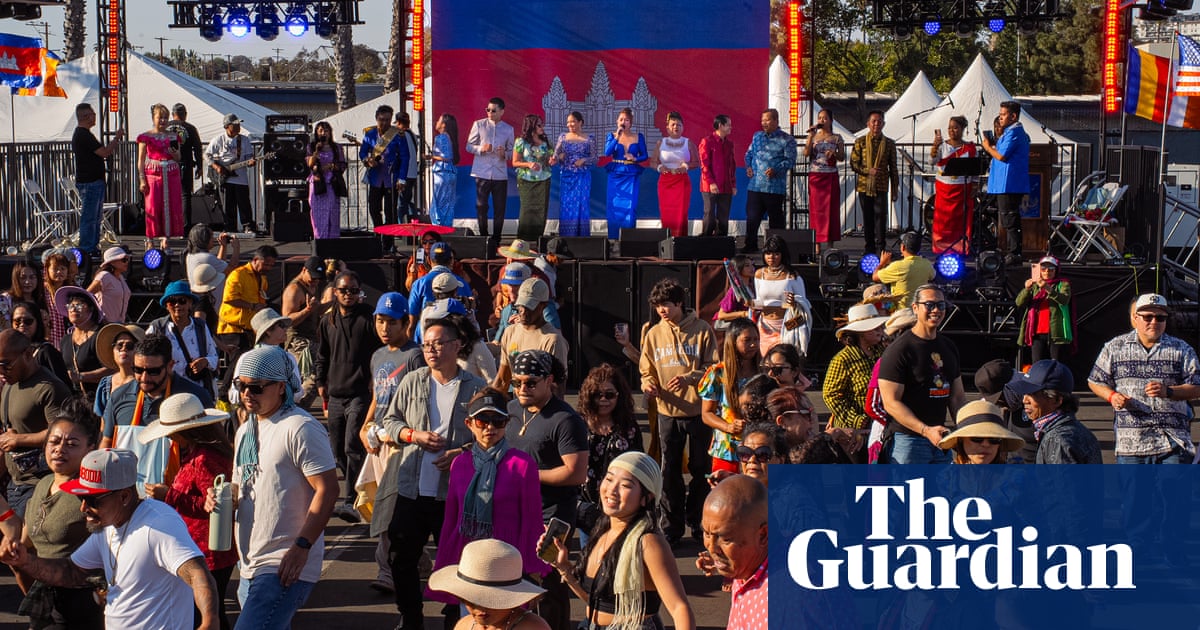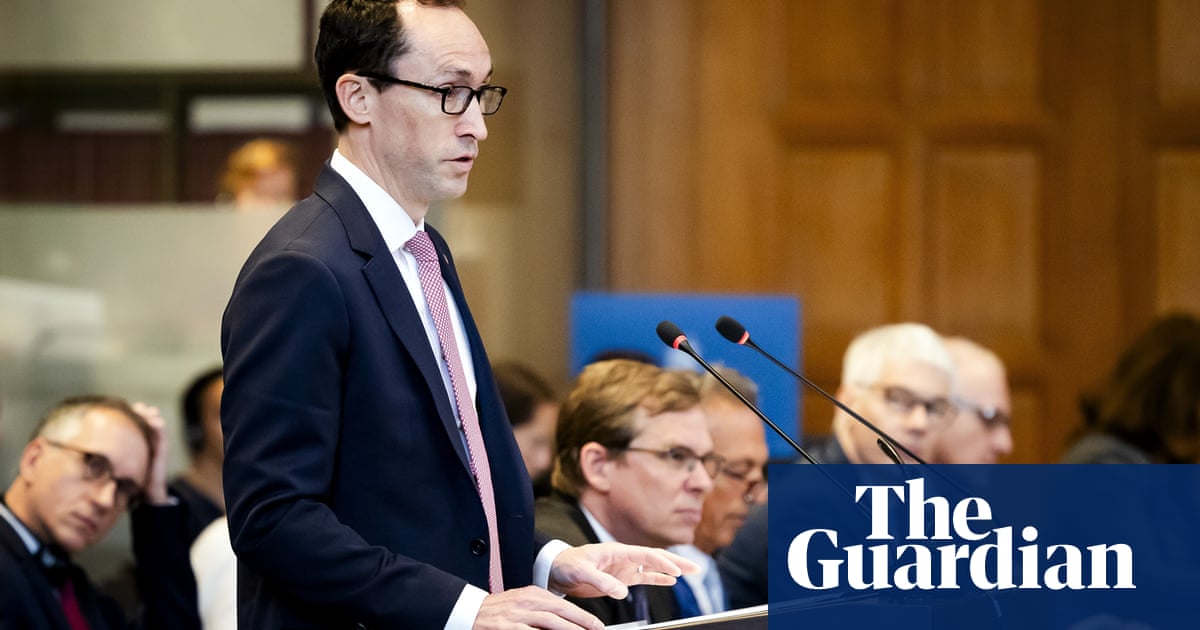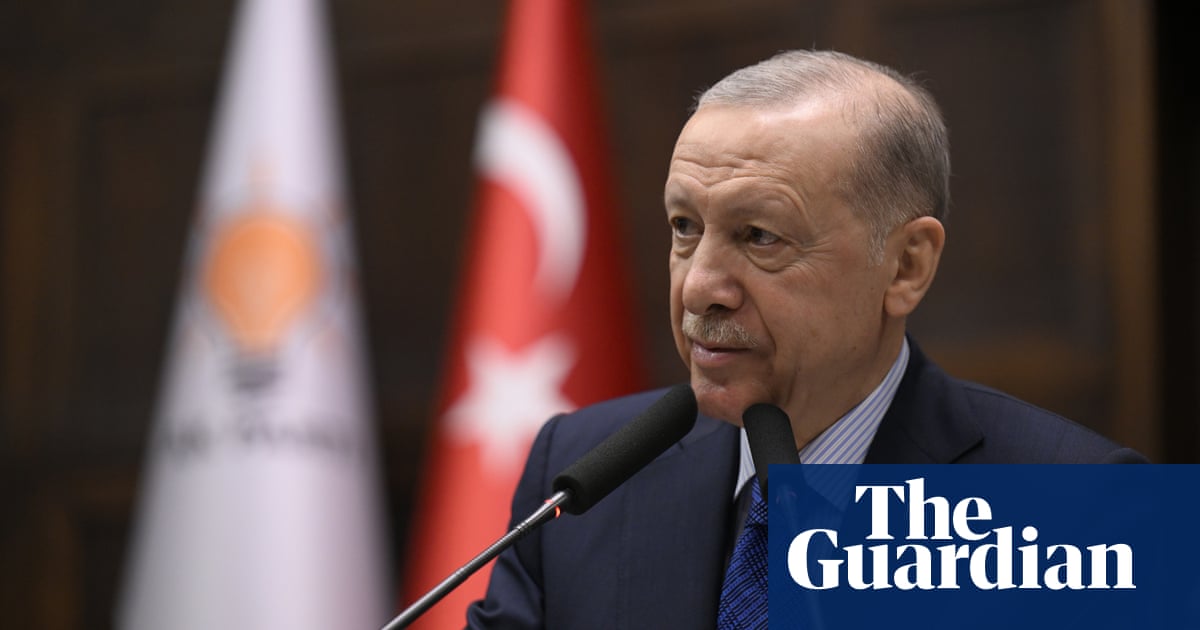When 19-year-old Javier Salazar was loaded on to a bus from an immigrant detention center in northern Texas, he had no idea where he was being taken.
He wondered if he was being transferred to another facility or maybe deported back to his native Venezuela. He and the other passengers, their hands and feet shackled, settled into a tense silence. Then a terrifying possibility crept into Salazar’s mind.
“My fear was being sent to El Salvador,” he said, to the brutal prison where the Trump administration has dispatched more than 200 Venezuelans into a legal black hole. They are accused of being violent gang members, but reportedly on flimsy evidence for most, deported without even a court hearing.
Salazar became stressed “because we’d been listening to the news and the other people at the facility”, hesaid in a telephone interview from detention.
His and other buses in the convoy from the remote Bluebonnet facility pulled over on the side of the road for an unexplained 15 minutes then drove on to Abilene regional airport, about 200 miles west of Dallas. Salazar recognized it as where he landed a few days earlier from detention in Farmville, Virginia, where he had been for about a month after Immigration and Customs Enforcement (Ice) arrested him and his father in neighboring Maryland.
But once they arrived at the airport in Abilene, the buses abruptly turned around. On the way back to Bluebonnet, a guard told them to be thankful to God, Salazar said. Later he found out the likely reason why. An emergency order in the early hours from the supreme court had temporarily blocked their removal from the US, in the latest clash between Donald Trump and the courts.

“I thank God that we weren’t sent to El Salvador, but I am still sad knowing that I am in this detention facility when I do not [even] have any tattoos [and have committed] no crimes,” Salazar said in a 25 April phone call, through an interpreter.
He is being held in stark conditions, separately from his father, and unable to speak with his ailing mother, who lives in Colombia.
Salazar’s case demonstrates that “if your only tool is a hammer everything looks like a nail,” said his attorney, Travis Collins. Based on court documents, exclusive interviews with Salazar, his brother and his attorney, and a review of an 23 April phone conversation between the 19-year-old and his legal team, the Guardian has pieced together how Salazar was swept into the administration’s dragnet.
Javier Salazar came to the US as an unaccompanied minor in 2022 and reunited with his father and some other relatives. The Guardian is using only his middle name, as he fears retaliation in Venezuela.
His father had listed him as a beneficiary on his own US asylum application, where an unmarried offspring under 21 gains asylum if it is granted to the parent. Javier has no known criminal record, was at school and, per the justice department website, has an immigration court date in Virginia scheduled for 14 May, where Collins had planned to request Salazar’s release from Ice detention while his legal case progresses.
But on an early mid-March morning, agents entered his father’s house in Maryland and took Salazar and his father away in handcuffs.
Afterwards, scrolling through his social media on their phones, agents interrogated Salazar and asked him to identify various people in his network. Salazar saw one of the agents writing down in his notes something about a gun – an English word he recognized, he said.

The agents did not show him the image, but Salazar remembers insisting to them that whatever they saw was probably a toy water pistol. The Guardian has reviewed an image that Salazar’s family thinks Ice may have been referring to, it shows a person standing near Salazar with a blue-and-white item peeking out of a pants pocket that resembles a small plastic water pistol.
Salazar was recorded in the authorities’ computer system as an alleged member of the Venezuelan Tren de Aragua criminal gang and was made to wear green prison clothing that signifies an alleged gangster, according to a court filing.
Ice was approached by the Guardian for comment but did not respond before publication.
Javier’s older brother Daniel described Salazar as the video game-obsessed “baby” of the family.
“He’s just a kid, still in the process of growing up,” Daniel told the Guardian in Spanish. Daniel’s full name is being withheld as he has an open immigration case. “Like any human being, he deserves a chance,” he added.
The family is in pain. “We miss him, my family, my aunts, my mom, what we do is cry,” Daniel said.
He has been posting social media slideshows with photos and videos set to music of Javier making peace signs at the beach, doing bicep curls at the gym, horsing around in a school cafeteria, rolling up a snowball.
“You are not a criminal, you are a human being with many dreams and goals, you do not deserve that injustice,” text on one of these slideshows reads in Spanish.
On 7 April, the supreme court ruled that immigrants subject to the obscure Alien Enemies Act (AEA) wartime law Trump is using to justify summary deportations must be given due process and time to seek legal remedies “before such removal occurs”.
A week later, attorneys heard murmurs that the Trump administration was preparing to ship more migrants to El Salvador. On 14 April, when a 9am video call with Salazar from detention in Virginia was abruptly cancelled via email at 7.11am, Collins knew something was wrong.
He scrambled to figure out where his clients were, “fearing the worst”, he said. Only two days later did he learn that they were taken to northern Texas, which at that time was not subject to a court block on summary removals under the AEA.
On 17 April, Bluebonnet staff separated Salazar from his father, took him outside and handed him a notice in English. They asked him to sign it without reading it to him in Spanish or giving him a chance to consult his lawyer. When he refused, the agent said: “It ‘doesn’t matter, you’re going to be deported within the next 48 hours. Where you’re being deported to, I don’t know,’” Salazar later recounted to Collins in the phone conversation reviewed by the Guardian.
The next thing Salazar knew, he was on that bus. The supreme court ruling order has now bought him some time, but the battle is far from over. In a court filing from 24 April, the administration said it believed a mere 12 to 24 hours was a “reasonable” amount of time for detainees to contest their removal – and that it may continue with removals even if a such petition is pending, if a court denies a request for an emergency pause.
Lee Gelernt, the deputy director of the American Civil Liberties Union (ACLU)’s Immigrants’ Rights Project vowed that his organization “will continue to fight in courts around the country, including the US supreme court, to ensure there is due process, so that no individual ends up, perhaps permanently, in a brutal foreign prison without ever having had a chance to contest the government’s allegations and use of a wartime authority during peacetime”, he told the Guardian.
Salazar’s relatives grapple with their decision to seek refuge and opportunity in the US. Daniel had thought that “the process would have been fair” based on how America has been portrayed on television, he said.
“I feel guilty because I told him to come so he could have a better life,” he said. “And look at what happened.”

.png) 6 hours ago
3
6 hours ago
3













































